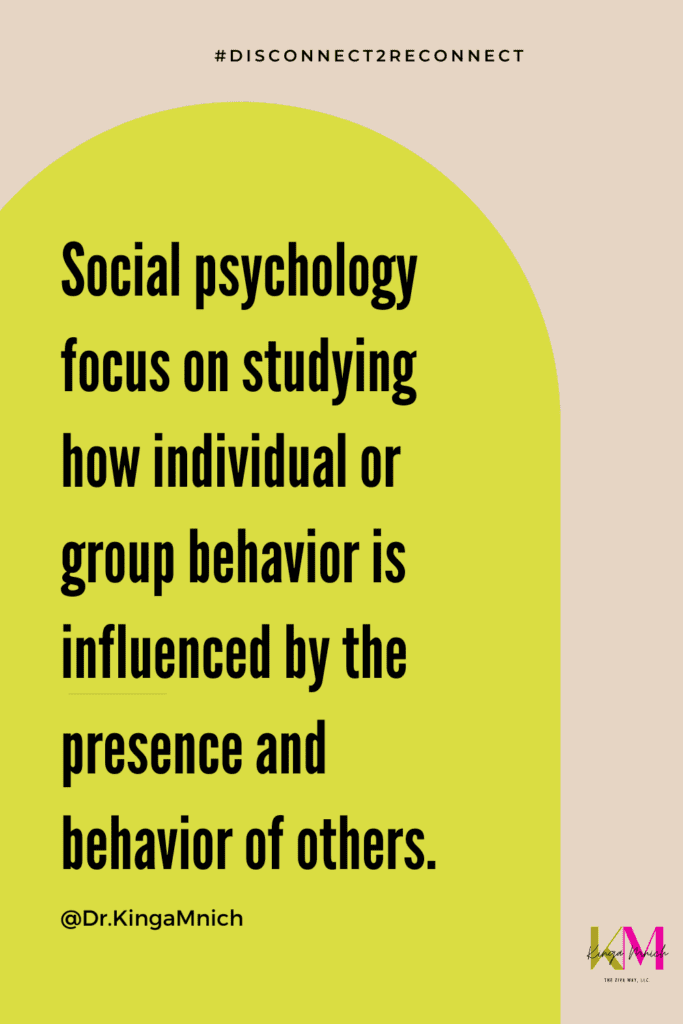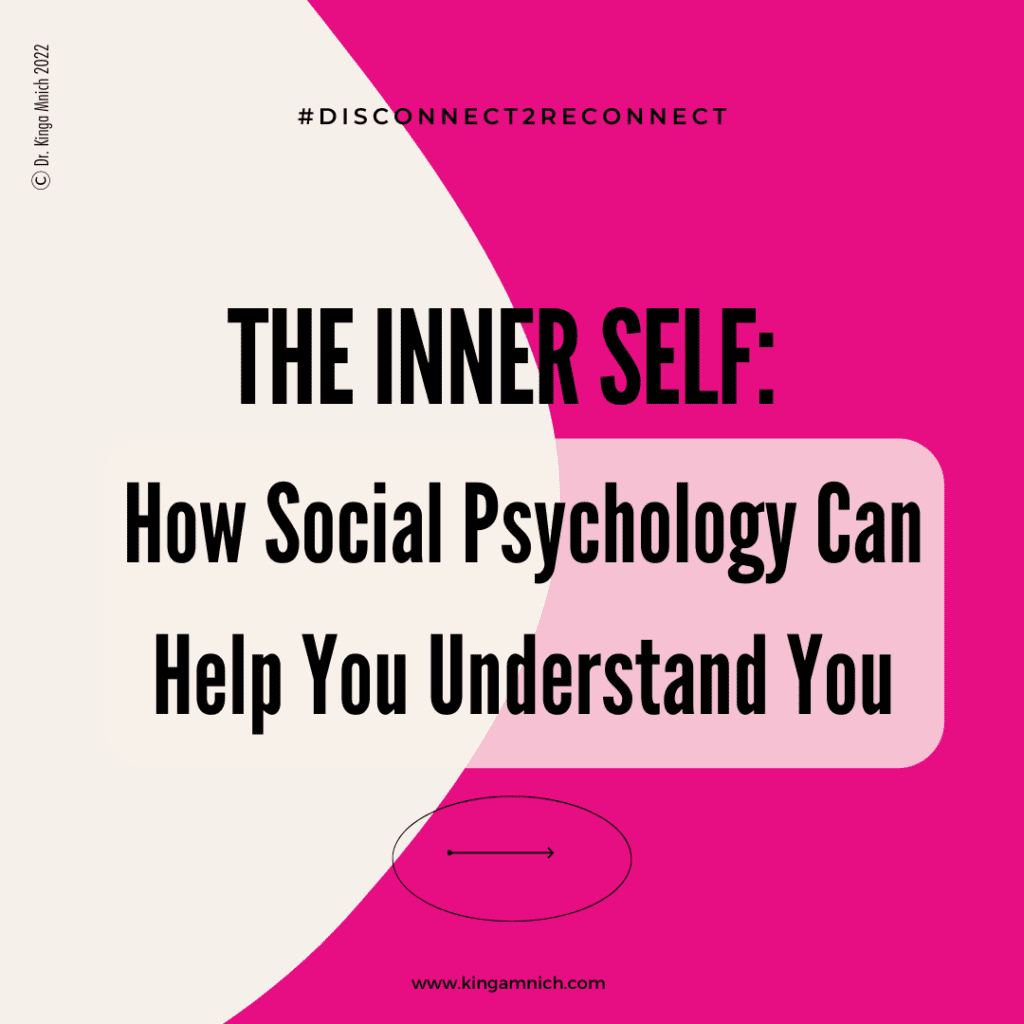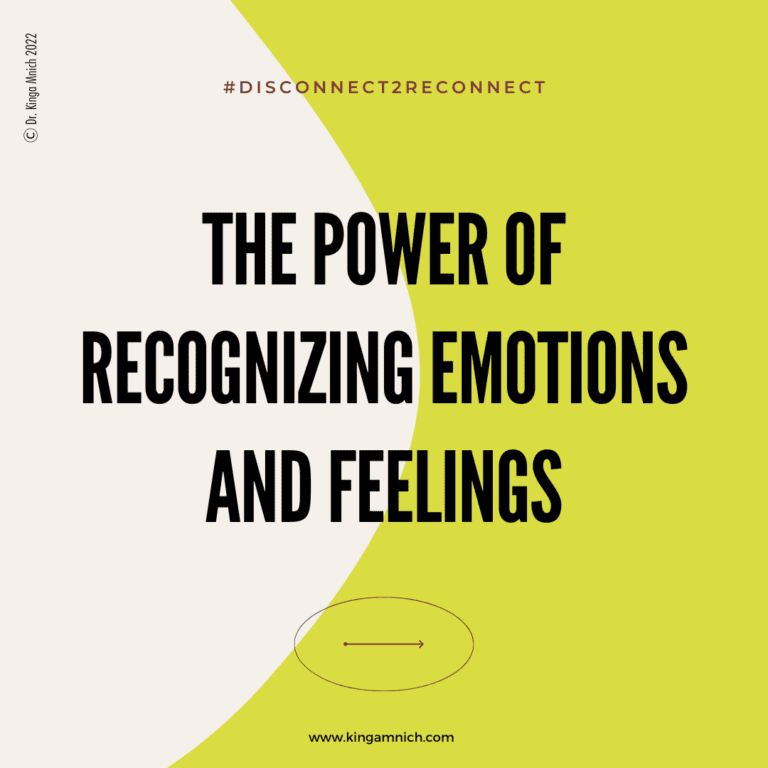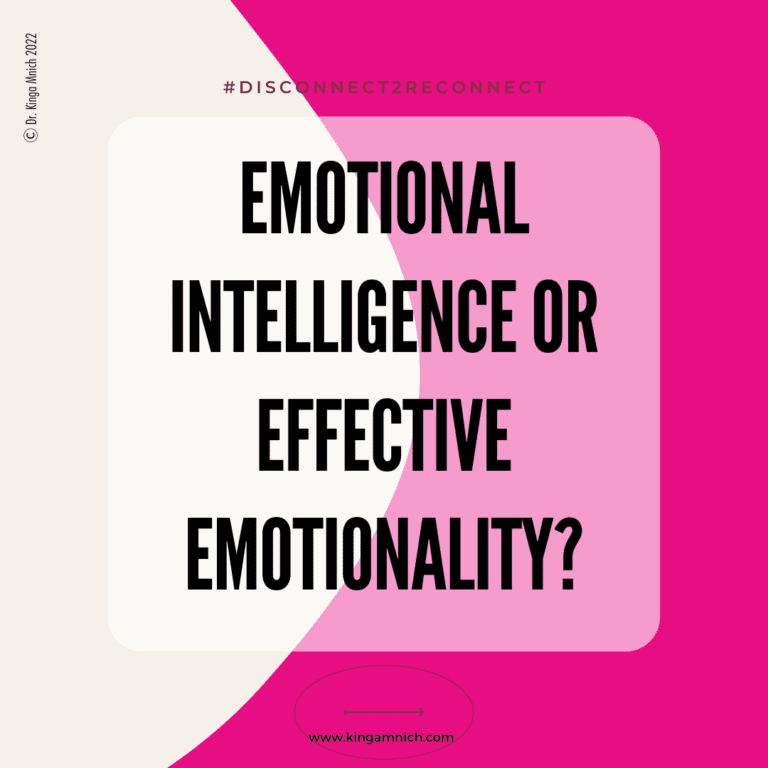Estimated reading time: 8 minutes

Your inner self is the essence of who you are. And yet, the psychology of the core of your identity is something that many people struggle vainly to understand. And it gets even harder when they also try to understand others.
The cognitive or affective representation of your identity is the psychology of self. But the inner self goes beyond your inner self. If all this troubles you, Social Psychology may offer the answer you are seeking – by highlighting the intersection between your authentic self and your external self.
According to Starr Sites, authenticity means “That you act in ways that show your true self and how you feel”. But what does that mean? And, who are you anyway?
What actually is the inner self?
The self lies at the core of our identity. We are who we think we are, and our self is an amalgamation of all our values, beliefs, and characteristics. It’s how we see ourselves that makes this possible. The self resides in our subconscious mind and varies from person to person (read more in Schaefer et al. 2017; Bargh et al. 2008). The inner self is the part of us that we aren’t always aware of or have control over, but that does play an essential role in our lives.
Let’s discuss the inner self, the common ways it manifests itself, and its potential importance to your well-being and happiness. Research shows that being able to access a true self-concept “leads to an enhanced sense that one’s life is meaningful,” according to Rebecca J. Schlegel, et al. (2009).
The inner self is the part of us that we aren’t always aware of or don’t always have control over, but it is a part that plays an essential role in our lives. The inner self can be a source of pride, conflict, or even something we can use to be in control. However, it is assumed that it is mainly unchangeable and hard to define because it exists on a sub-personal level.
But, if one is setting out on a self-development journey, understanding your inner self is important – right from the start!
Why does the inner self matter?
The self is vital for two main reasons. Firstly, it is the center of our identity. It determines who we are and what we do. Secondly, it’s a part of us that we can’t always control, and this can lead to anxiety and stress.
The inner self is where most of our unconscious thought operates. The subconscious mind only requires a little conscious effort to manage normal day-to-day activities; it just goes on without our knowledge or input – unless we actively try to change something. Because of this routine, our subconscious thoughts are primarily determined by our intrinsic values, beliefs, and characteristics. [The thoughts in your subconscious represent your inner self (Windman & Krüger 1998)].
But, the internal self matters because it affects how we view ourselves, approach life situations, and interact with others daily. It also can produce shame, or pride, when we make decisions based on external factors or on other people’s opinions about us (peer pressure) instead of on our own values or beliefs.
Common ways in which the inner self manifests itself.
The inner self is a part of us that we aren’t always aware of or have control over. While it may be difficult to pinpoint concrete examples, the inner self can still be hard to ignore.
The following are some common examples:
- Self-consciousness: The feeling of being observed and scrutinized by others resulting in an overconcern about the impression one is making on others. [Self-consciousness is a personality trait that involves a heightened sense of self-awareness about personal behavior, appearance, or other attributes of the self (Ronald L. Jackson II & Michael A. Hogg)]
- Self-esteem: Our opinion about ourselves and how we feel about our abilities, our appearance, and our skills.
- Sense of humor: We can deal with stress and painful emotions by laughing at them rather than feeling bad about them…or can we?
- Emotional intelligence: The ability to understand yourself, your feelings, and those around you.
- Effective emotionality: The ability to use your emotions as effectively as your other senses.
“There is but one cause of human failure. And that is man’s lack of faith in his true Self.”
William James
Importance of the inner self.
The inner self is our feeling of authenticity and helps us make decisions. It’s essential, therefore, to have a well-rounded understanding of who we are and how we operate. But here is the thing, in order to understand ourselves, we need to understand how culture, society and our direct environment will influence us.
In the end, we can start using the inner self as a tool for personal growth and development or for finding happiness in our life.
Summary
The inner self is the part of us that we are not always aware of or have control over. This includes values, beliefs, and characteristics. The self resides in our subconscious mind and varies from person to person. The inner self is connected to our emotions and cognitive processes. It affects our behavior, decision-making, and sense of well-being and happiness.
What you can do to understand yourself better.
All of the recommendations that you will find anywhere, no matter if it is a therapist, coach or mind strategist, they all start with developing self-awareness. Self-awareness is the state “in which you are aware of what you are doing,” according to Arai and Takeno (2018). It arises through explicit consciousness, meaning in a state of focus.
Good examples could be when you have prepared a meeting so extensively that you almost have a sense of being able to detachedly observe yourself in action. Or those precious moments when you don’t agree with someone else and yet your mind is so keen that you are fully aware of all the logic and reasoning of why you don’t agree.
There are many ways in which you can improve your understanding of yourself, but one very important way is to pay attention to the thoughts that come into your head and to be aware of how you talk about yourself to others. You may notice specific patterns, like certain things you’re often criticized for, or things that repeatedly make you feel good. Additionally, look at what makes you who you are from different angles and from different perspectives. For instance, if a person is close to you but doesn’t know everything about you, use their perspective as a lens to see your strengths and weaknesses more clearly.
How to strengthen your inner self.
Remember: the inner self is that part of us that we aren’t always aware of or have control over, but that plays an essential role in our lives. It is common to think of the inner self as a fixed entity, not something that can be changed. But you are made up of more than just your physical body; your inner self results from your thoughts, feelings, beliefs, and behaviors. You can strengthen your inner self by developing new values based on those you know are most important to you and changing how you react to people around you.
You can also change the way you respond to people around you by using social psychology. Social psychology is the study of how humans interact with one another in society. Increasingly, researchers realize that culture’s norms hugely influence people and how they then act in certain situations. For example, it’s said that men in North America often interrupt women if they feel they should be kept from being interrupted first. This demonstrates the power of social norms and reinforces the idea that we are all influenced by them.
See How the Inner Self Can Be Important to Well-Being and Happiness?
The inner self is what makes us who we are. It can be described as the “inner you” or your most important values, beliefs, and characteristics – and it is yours to develop and fine-tune entirely to make your life less tense, more fulfilled and happier.
Conclusion
It is easy to become lost in the busyness of life and forget that we have an inner self. Our minds are constantly bombarded with outside influences, and to be happy, we must find peace and solitude. By understanding how the inner self can help us achieve happiness and well-being, you’ll start to see the importance of the inner self.
References & Read More:
https://blogs.scientificamerican.com/observations/the-inconvenient-truth-about-your-authentic-self/
Arai, Soichiro and Takeno, Junichi 2018. Discussion on Explicit Consciousness, Sub-Counsciousness, and Self-Awareness in a Conscious System. In. Procedia Compter Science 123 35-40
Bargh, John A. & Morsella, Ezequiel 2008. The Unconscious Mind. In. Perspect Psychol Sci. 2008 Jan; 3(1): 73–79.
Schaefer, Michael and Georg Northoff 2017. Who Am I: The Conscious and the Unconscious Self. Front Hum Neurosci. 2017 Mar 17;11:126.
Schlegel, Rebecca J. et.al. 2009. Thine Own Self: True Self-Concept Accessibility and Meaning in Life. J Pers Soc Psychol. 2009 Feb; 96(2): 473–490. (Keywords True Self-Concept, well-being, True Self, Meaning in Life, Cognitive Accessibility)
Windmann, Sabine and Krüger, Thomas 1998. Subconscious Detection of Threat as Reflected by an Enhanced Response Bias. CONSCIOUSNESS AND COGNITION 7, 603–633
Note:
That true self-concept accessibility leads to an enhanced sense that one’s life is meaningful. Rebecca J. Schlegel, et al. 2009
Jackson, R. L., & Hogg, M. A. (Eds.) 2010. Encyclopedia of Identity . (Vols. 1-1). SAGE Publications, Inc., https://dx.doi.org/10.4135/9781412979306
Additional Quotes:
“In identity theory, the core of an identity is the categorization of the self as an occupant of a role, and the incorporation, into the self, of the meanings and expectations associated with that role and its performance (Burke and Tilly 1977; Thoits 1986)In: Stets & Burke (2000): Idenity Theory and Social Identity Theory. Social Psychology Quarterly. Vol. 63, No. 3, 224-237












